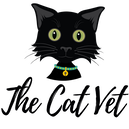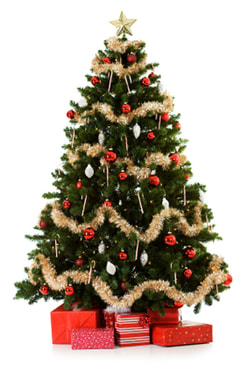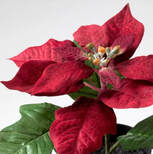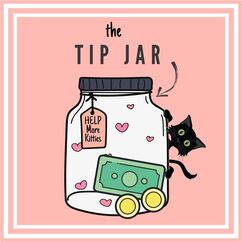Dr Jo Blogs
Expert Cat Care Advice
Festive Hazards for Cats
Your Guide to a Vet-Free Christmas & New Year
Dr Jo Lewis MRCVS | 13 Dec 2018 | 10 min read
Share:
Things like:
- Decorations - Christmas trees & other ornaments
- Furniture - extra chairs/beds to cater for guests or movement of existing furniture to make room for big Christmas trees etc
- People - equating to extra noise and foot traffic and potentially young children
- Animals - if your guests arrive with their own dog or cat (not recommended!)
- Smells - Christmas scented candles, oils, air fresheners and potpourri
Learn to Think Like A Cat online with a course from my Think Like A Cat Academy. Then you can be sure your cats will purr more and stress less this Christmas time and all year round!
Common Festive Toxins
- Holly, ivy, mistletoe, poinsettia – these have varying degrees of toxicity but they all tend to irritate the mouth and gut. Some cause more severe issues. Best to keep these out of your home altogether if you have cats.
- Flower bouquets - all parts of the flower (petals, pollen, stamen), leaves and vase water contain highly toxic chemicals. Always check whether a bouquet contains lilies when ordering or receiving flowers and never ever have them in a home where cats live. Other cut flowers can also cause varying degrees of toxicity (mainly local gastrointestinal and mouth irritation) but few are as fatally toxic as lilies.
- Christmas trees – real tree pine needles and the water they are sitting in contain pine oil which is toxic to cats. Cats can end up ingesting the toxins either from chewing the tree leaves, drinking the tree water or climbing up/scratching the tree and then grooming the sap/oil on their paws and fur. Bear in mind also, that tree food used to enhance the life of your tree contains pesticides, fertilizers and other chemicals that are also toxic to cats. Artificial trees can still cause problems if large quantities of indigestible plastic leaves are eaten. Artificial spray on snow is not safe for cats if chewed in large quantities either.
- Fruit cakes, mince pies and puddings - grapes, raisins current sultanas are all highly toxic to cats!
- Gravy, stuffing – onions, garlic, leeks, chives etc are all toxic to cats
- Fatty & salty trimmings – it doesn’t take much of this to overload a cat’s tiny body as they don't cope well with sudden diet changes. The excess fat & salt can upset the digestive tract and pancreas enough to require hospitalisation in some cases. It’s best not to encourage cats to eat festive food left overs or tasty treats designed for humans, they will have a happier time without such indulgences.
- Chocolate – initially causes gastrointestinal upset but then progresses to affect the nervous system and the heart
- Macadamia nuts – these nuts contain a toxin that causes weakness and depression, vomiting, tremors, unsteadiness
- Xylitol – an artificial sweetener found in sugar free foods cause low blood sugar and liver failure if eaten.
- Essential oils & potpourri – most essential oils cause chemical ulcers on your cats tongue and also as they move through the rest of the gut. Pot pourri made from dried bark and flowers contains strychnine a well-known nerve toxin.
- Silica gel – these are little sachets of powder often put in product packaging to absorb moisture (eg shoe boxes, new handbags, cameras)
|
The Cat Vet's Top Tip
If you want all the atmosphere of a Ponsettia this Christmas without the stress, why not 'go faux'. Ikea do a Ponsettia as part of the Fejka range at Christmas time. It is very life-like & your cat is much less likely to be interested in it than the real thing! Oh, and you don't have to worry about watering it either!
|
Foreign object ingestion
Although we typically don’t see as many cats with intestinal blockages from foreign objects as we do dogs it does still happen. As the old saying goes "curiosity killed the cat" and at Christmas time there is an increased chance your cat may be enticed into eating something they shouldn’t, such as:
- Linear objects - The most common and life-threatening issue in cats is swallowing linear objects. Cats just can’t resist shiny, sparkly, crinkly objects so Christmas is a potential disaster waiting to happen with all the tinsel, string, ribbon, wrappings and packaging materials that are in plentiful supply and of course the tasty string used to wrap cooked meats. If swallowed these act a bit like the drawstring on a pair of pyjama trousers. Once inside your cat’s intestines it causes the gut to gather together, bunching up and eventually twisting which is very painful and life threatening.
- Cooked bones (eg turkey) – these are more brittle than raw bones and can wreak havoc on your cat’s gut. At best they work their way through causing pain and bleeding but at worst they can get stuck part the way down and puncture the gut wall and quickly lead to a fatal infection.
- Tooth picks, wooden skewers and Christmas tree pine needles are sharp enough to penetrate the gut or mouth if chewed or swallowed.
- Small batteries – batteries contain caustic chemicals & heavy metals that reacts with stomach acid to cause chemical burns to the lining of the gut and can even burn a hole in the gut which is life threatening.
Electrocution
Cats often are attracted to dangling cables. They also seem to enjoy wrapping themselves around cables and kicking and chewing on them in my experience. With sparkly Christmas lights along them the temptation is even higher. Saliva conducts electricity so cats that break through the cable's protective plastic coating can suffer electrocution. Cats that survive the electric shock may often still suffer serious issues (eg tongue & fur burns, heart/lung problems).
Top Tips for Purrsistent Chewers
Also check out my tips and tricks on my How to cat proof your Christmas tree blog |
|
Other Types of Emergencies
Of course there are all the usual risks of accidents, illness and poisons that happen all year round but are more likely when you're entertaining or distracted with the seasonal festivities. For more information about Common Feline Emergencies visit my dedicated page.
Be prepared - know where to go if the worst does happen!
Even with all the festive good will and care in the world, animal accidents and emergencies can still happen. Make sure you’re prepared in advance. If you think your cat has been exposed to any of these potentially toxic or damaging situations the best thing to do is contact your vet ASAP. You may be able to get reliable free advice over the phone as to whether you need to rush your cat down to a veterinary A&E or whether it is safe enough to monitor for further symptoms.
Please don't post questions about your cat's health on internet forums. Although fellow forumites may be well-meaning, if you are concerned enough to ask the question online, then why not pick up the phone and ask someone who is both well-meaning and well-trained to answer your question.
Check your vet’s emergency cover provision and holiday opening hours. If you're new to an area or are away from home, use the RCVS Find a Vet online facility to locate a veterinary practice in an emergency.
Please don't post questions about your cat's health on internet forums. Although fellow forumites may be well-meaning, if you are concerned enough to ask the question online, then why not pick up the phone and ask someone who is both well-meaning and well-trained to answer your question.
Check your vet’s emergency cover provision and holiday opening hours. If you're new to an area or are away from home, use the RCVS Find a Vet online facility to locate a veterinary practice in an emergency.







